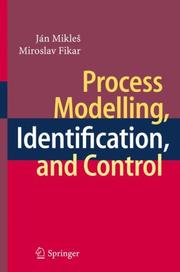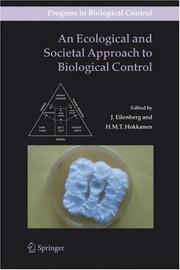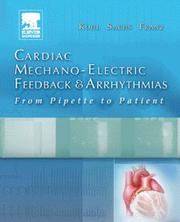| Listing 1 - 10 of 378 | << page >> |
Sort by
|
Book

ISBN: 9781849960717 9781849960700 Year: 2010 Publisher: London Springer London
Abstract | Keywords | Export | Availability | Bookmark
 Loading...
Loading...Choose an application
- Reference Manager
- EndNote
- RefWorks (Direct export to RefWorks)
Automotive control has developed over the decades from an auxiliary te- nology to a key element without which the actual performances, emission, safety and consumption targets could not be met. Accordingly, automotive control has been increasing its authority and responsibility - at the price of complexity and di?cult tuning. The progressive evolution has been mainly ledby speci?capplicationsandshorttermtargets,withthe consequencethat automotive control is to a very large extent more heuristic than systematic. Product requirements are still increasing and new challenges are coming from potentially huge markets like India and China, and against this ba- ground there is wide consensus both in the industry and academia that the current state is not satisfactory. Model-based control could be an approach to improve performance while reducing development and tuning times and possibly costs. Model predictive control is a kind of model-based control design approach which has experienced a growing success since the middle of the 1980s for slow complex plants, in particular of the chemical and process industry. In the last decades, severaldevelopments haveallowedusing these methods also for fast systemsandthis hassupporteda growinginterestinitsusealsofor automotive applications, with several promising results reported. Still there is no consensus on whether model predictive control with its high requi- ments on model quality and on computational power is a sensible choice for automotive control.
Engineering. --- Control. --- Automotive Engineering. --- Ingénierie --- Automatic control --- Control theory
Book

ISBN: 9781849963350 9781849963343 Year: 2010 Publisher: London Springer London
Abstract | Keywords | Export | Availability | Bookmark
 Loading...
Loading...Choose an application
- Reference Manager
- EndNote
- RefWorks (Direct export to RefWorks)
Fractional-order Systems and Controls details the use of fractional calculus (calculus of non-integer order) in the description and modeling of systems, and in a range of control design and practical applications. It is largely self-contained, covering the fundamentals of fractional calculus together with some analytical and numerical techniques and providing MATLAB® codes for the simulation of fractional-order control (FOC) systems (available by download from www.springer.com/ISBN). The use of fractional calculus can improve and generalize well-established control methods and strategies. Many different FOC schemes are presented for control and dynamic systems problems. These extend to the challenging control engineering design problems of robust and nonlinear control. Practical material relating to a wide variety of applications including, among others, mechatronics, civil engineering, irrigation and water management, and biological systems is also provided. All the control schemes and applications are presented in the monograph with either system simulation results or real experimental results, or both. Fractional-order Systems and Controls introduces its readers - academic and industrial control researchers interested in mechatronics, nonlinear and robust control, and applications fields from civil engineering to biological systems - to the essentials of FOC and imbues them with a basic understanding of FOC concepts and methods. With this knowledge readers can extend their use of FOC in other industrial system applications, thereby expanding their range of disciplines by exploiting this versatile new set of control techniques.
Engineering. --- Control. --- Systems Theory, Control. --- Mechatronics. --- Engineering. --- Systems theory. --- Ingénierie
Book
ISBN: 9781441912169 9781441912152 1441912150 Year: 2010 Publisher: New York: Springer,
Abstract | Keywords | Export | Availability | Bookmark
 Loading...
Loading...Choose an application
- Reference Manager
- EndNote
- RefWorks (Direct export to RefWorks)
Control of Complex Systems: Structural Constraints and Uncertainty focuses on control design under information structure constraints, with a particular emphasis on large-scale systems. The complexity of such systems poses serious computational challenges and severely restricts the types of feedback laws that can be used in practice. This book systematically addresses the main issues, and provides a number of applications that illustrate potential design methods, most which use Linear Matrix Inequalities (LMIs), which have become a popular design tool over the past two decades. Authors Aleksandar I. Zecevic and Dragoslav D. Siljak use their years of experience in the control field to also: Address the issues of large-scale systems as they relate to robust control and linear matrix inequalities Discuss a new approach to applying standard LMI techniques to large-scale systems, combining graphic-theoretic decomposition techniques with appropriate low-rank numerical approximations and dramatically reducing the computational effort Providing numerous examples and a wide variety of applications, ranging from electric power systems and nonlinear circuits to mechanical problems and dynamic Boolean networks Control of Complex Systems: Structural Constraints and Uncertainty will appeal to practicing engineers, researchers and students working in control design and other related areas.
Engineering. --- Control, Robotics, Mechatronics. --- Vibration, Dynamical Systems, Control. --- Systems Theory, Control. --- Systems theory. --- Vibration. --- Ingénierie --- Vibration --- Control theory --- Large scale systems
Book
ISBN: 9783540939184 9783540939177 3540939172 Year: 2010 Volume: 398 Publisher: New York: Springer,
Abstract | Keywords | Export | Availability | Bookmark
 Loading...
Loading...Choose an application
- Reference Manager
- EndNote
- RefWorks (Direct export to RefWorks)
This Festschrift, published on the occasion of the sixtieth birthday of Yutaka - mamoto ( YY' as he is occasionally casually referred to), contains a collection of articles by friends, colleagues, and former Ph.D. students of YY. They are a tribute to his friendship and his scienti?c vision and oeuvre, which has been a source of inspiration to the authors. Yutaka Yamamoto was born in Kyoto, Japan, on March 29, 1950. He studied applied mathematics and general engineering science at the Department of Applied Mathematics and Physics of Kyoto University, obtaining the B.S. and M.Sc. degrees in 1972 and 1974. His M.Sc. work was done under the supervision of Professor Yoshikazu Sawaragi. In 1974, he went to the Center for Mathematical System T- ory of the University of Florida in Gainesville. He obtained the M.Sc. and Ph.D. degrees, both in Mathematics, in 1976 and 1978, under the direction of Professor Rudolf Kalman.
Engineering. --- Control , Robotics, Mechatronics. --- Systems Theory, Control. --- Signal, Image and Speech Processing. --- Systems theory. --- Control engineering systems. --- Ingénierie --- System theory --- Control theory --- Signal processing
Book
ISBN: 9783642046131 9783642046124 3642046126 Year: 2010 Publisher: New York: Springer,
Abstract | Keywords | Export | Availability | Bookmark
 Loading...
Loading...Choose an application
- Reference Manager
- EndNote
- RefWorks (Direct export to RefWorks)
Mathematical control theory of applied partial differential equations is built on linear andnonlinearfunctionalanalysisand manyexistencetheoremsin controlt- ory result from applications of theorems in functional analysis. This makes control theoryinaccessibleto studentswhodo nothave a backgroundin functionalanalysis. Many advanced control theory books on in?nite-dimensionalsystems were wr- ten, using functional analysis and semigroup theory, and control theory was p- sented in an abstract setting. This motivates me to write this text for control theory classes in the way to present control theory by concrete examples and try to m- imize the use of functional analysis. Functional analysis is not assumed and any analysis included here is elementary, using calculus such as integration by parts. The material presented in this text is just a simpli?cation of the material from the existing advanced control books. Thus this text is accessible to senior undergra- ate studentsand?rst-yeargraduatestudentsin appliedmathematics,who havetaken linear algebra and ordinary and partial differential equations. Elementary functional analysis is presented in Chapter 2. This material is - quired to present the control theory of partial differential equations. Since many control conceptsand theories for partial differentialequations are transplanted from ?nite-dimensionalcontrol systems, a brief introduction to feedback control of these systemsispresentedinChapter3.Thetopicscoveredinthischapterincludecontr- lability, observability,stabilizability, pole placement, and quadratic optimal control.
Mathematics. --- Partial Differential Equations. --- Applications of Mathematics. --- Control. --- Differential equations, partial. --- Mathématiques --- Control theory --- Wave equation --- Control theory. --- Feedback control systems. --- Wave equation.

ISBN: 9783540719694 3540719695 9783540719700 3642091121 9786610944347 128094434X 3540719709 Year: 2007 Publisher: Berlin : Springer,
Abstract | Keywords | Export | Availability | Bookmark
 Loading...
Loading...Choose an application
- Reference Manager
- EndNote
- RefWorks (Direct export to RefWorks)
This compact and original reference and textbook presents the most important classical and modern essentials of control engineering in one book. It constitutes a harmonic mixture of control theory and applications, which makes the book especially useful for graduate students, practicing engineers and researchers interested in modeling and control of processes. This well written and easily understandable book includes a broad spectrum of methods for the analysis and design of control systems in a very thorough way. The book includes solved multitude of practical applications, examples, exercises and unsolved problems at the end of each chapter as well as Matlab tools which are freely available at the web page of the book. "This is an impressive book really worth to be published. I do not know of any modern textbook including such a broad spectrum of classical and modern methods for analysis and synthesis of control systems not being represented superficially but very thoroughly" Heinz Unbehauen, Bochum University.
Process control --- Chemical process control --- Mathematical models. --- Chemical process control -- Mathematical models. --- Process control -- Mathematical models. --- Industrial & Management Engineering --- Mechanical Engineering --- Engineering & Applied Sciences --- Mathematical models --- Control of industrial processes --- Industrial process control --- Engineering. --- System theory. --- Vibration. --- Dynamical systems. --- Dynamics. --- Control engineering. --- Robotics. --- Mechatronics. --- Control, Robotics, Mechatronics. --- Systems Theory, Control. --- Vibration, Dynamical Systems, Control. --- Automatic control --- Manufacturing processes --- Quality control --- Cycles --- Mechanics --- Sound --- Systems, Theory of --- Systems science --- Science --- Philosophy --- Systems theory. --- Dynamical systems --- Kinetics --- Mathematics --- Mechanics, Analytic --- Force and energy --- Physics --- Statics --- Mechanical engineering --- Microelectronics --- Microelectromechanical systems --- Automation --- Machine theory --- Control engineering --- Control equipment --- Control theory --- Engineering instruments --- Programmable controllers

ISBN: 9781402043208 9781402044014 Year: 2010 Publisher: Dordrecht : Springer,
Abstract | Keywords | Export | Availability | Bookmark
 Loading...
Loading...Choose an application
- Reference Manager
- EndNote
- RefWorks (Direct export to RefWorks)
Biological control is among the most promising methods for control of pests (including vectors), diseases and weeds. In this book ecological and societal aspects are for the first time treated together. In an ecological approach the aim is to evaluate the significance of certain biological properties like biodiversity and natural habitats. Also, it is important to see biological control from an organic (or ecological) farming point of view. In a societal approach terms like consumer's attitude', risk perception', learning and education' and value triangle' are recognised as significant for biological production and human welfare.
Biological control --- ecology --- Biological control agents --- natural enemies --- socioeconomic environment --- Innovation adoption --- Economic sociology

ISBN: 1416000348 Year: 2005 Publisher: Philadelphia, PA : W.B. Saunders,
Abstract | Keywords | Export | Availability | Bookmark
 Loading...
Loading...Choose an application
- Reference Manager
- EndNote
- RefWorks (Direct export to RefWorks)
Heart --- Arrhythmia. --- Heart conduction system. --- Biological control systems. --- Contraction.
Book
ISBN: 9783211732656 Year: 2007 Publisher: Vienna Springer Vienna
Abstract | Keywords | Export | Availability | Bookmark
 Loading...
Loading...Choose an application
- Reference Manager
- EndNote
- RefWorks (Direct export to RefWorks)
It is well known that computer algebra systems have revolutionized teaching and the learning processes in mathematics, science, and - gineering, allowing students to computationally investigate complicated problems to ?nd exact or approximate analytic solutions, numeric so- tions, and illustrative two- and three-dimensional graphics. Since the 1960s there has existed individual packages for solving s- ci?c analytic, numerical, graphical and other problems. The need to solve all those problems with the aid of a single system, has led to the idea of construction of a modern general purpose computer algebra s- tem. The ?rst two papers describing analytic calculations realized on a computer were published in 1953 [7]. In the early 1970s, systems of - alytic computations (SAC),or computer algebra systems (CAS), began to appear. Computer algebra systems are computational interactive programs that facilitate symbolic mathematics and can handle other type of pr- lems. The ?rst popular systems were Reduce, Derive, and Macsyma, which are still commercially available. Macsyma was one of the ?rst and most mature systems. It was developed at the Massachusetts - stitute of Technology (MIT), but practically its evolution has stopped since thesummer of 1999. Afree software version of Macsyma, Maxima, is actively being maintained. To the present day, there have been developed more than a hundred computer algebra systems [7], [18]. Among these we can ?nd Axiom, Derive, Maxima, Maple, Mathematica, Matlab, MuMATH, MuPAD, Reduce, etc. All these systems can be subdivided into specialized and general-purpose computer algebra systems ([7], [18], [2]).
Mathematical control systems --- Computer science --- Computer. Automation --- informatica --- wiskunde --- informaticaonderzoek
Book
ISBN: 9783642235924 Year: 2012 Publisher: Berlin Heidelberg Springer Berlin Heidelberg Imprint Springer
Abstract | Keywords | Export | Availability | Bookmark
 Loading...
Loading...Choose an application
- Reference Manager
- EndNote
- RefWorks (Direct export to RefWorks)
This book Algebraic Modeling Systems - Modeling and Solving Real World Optimization Problems - deals with the aspects of modeling and solving real-world optimization problems in a unique combination. It treats systematically the major algebraic modeling languages (AMLs) and modeling systems (AMLs) used to solve mathematical optimization problems. AMLs helped significantly to increase the usage of mathematical optimization in industry. Therefore it is logical consequence that the GOR (Gesellschaft für Operations Research) Working Group Mathematical Optimization in Real Life had a second meeting devoted to AMLs, which, after 7 years, followed the original 71st Meeting of the GOR (Gesellschaft für Operations Research) Working Group Mathematical Optimization in Real Life which was held under the title Modeling Languages in Mathematical Optimization during April 23-25, 2003 in the German Physics Society Conference Building in Bad Honnef, Germany. While the first meeting resulted in the book Modeling Languages in Mathematical Optimization, this book is an offspring of the 86th Meeting of the GOR working group which was again held in Bad Honnef under the title Modeling Languages in Mathematical Optimization.
Operational research. Game theory --- Mathematical control systems --- speltheorie --- operationeel onderzoek
| Listing 1 - 10 of 378 | << page >> |
Sort by
|

 Search
Search Feedback
Feedback About UniCat
About UniCat  Help
Help News
News